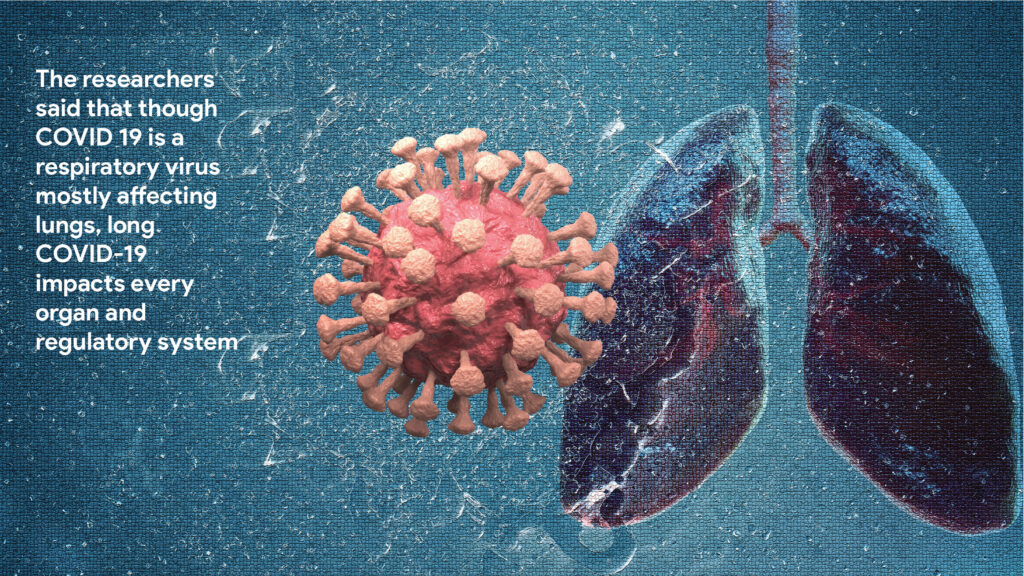Why do some COVID-19 patients continue to have long term adverse effects?
Even after recovery a few coronavirus patients continue to have complications. The long term effects of COVID-19 should not be ignored as they damage vital organs like the lungs, brain and the heart. Any lingering issues should be taken seriously and regular check ups will ensure treatment is taken at once.
Avigna Diagnostic Center Hyderabad presents an informative 5 minute reading on post COVID complications. Please share it with others who may benefit from it. The ongoing research on long-term effects of new coronavirus disease is not yet conclusive but as updates arrive we shall share with our patients.
Common Concerns
- Respiratory system: Difficulty in breathing, cough, pulmonary fibrosis and low oxygen in blood
- Nervous system: Headache, memory lapses and loss of smell and taste senses
- Cardiovascular system: Increased/ irregular heartbeat, coronary issues, palpitations and heart failure
- Gastrointestinal system: Diarrhea, blood vomiting and constipation
- Mental health: Depression, mood swings, anxiety, loss of concentration and sleep issues
- Musculoskeletal system: Chest, muscle and joint pain
- General health: Extreme fatigue, skin rash, hair fall, vertigo, weight gain, low fever, high cholesterol swallowing problem, low appetite, kidney issues and blood clotting.
Current Research Findings
Research done at Washington University School of Medicine in St. Louis summarized that COVID-19 survivors, whether hospitalized or otherwise, run a 60% higher risk of dying in six months following the infection. The researchers said that though COVID-19 is a respiratory virus mostly affecting lungs, long COVID-19 impacts every organ and regulatory system.
Post COVID Complications in the Body Include
- Heart: Tests done months after total recovery from the infection have found that lasting damage is done to the heart causing myocarditis, inflammation of this muscle. It results in higher risk of heart failure and complications in future.
- Lungs: In many cases, patients discharged after severe COVID-19 suffer from pulmonary fibrosis causing damage to tiny air sacs, leading to shortness of breath.
- Brain: Severe COVID19 patients’ can experience neurological manifestations – dizziness and nerve pain. It leads to strokes, seizures and Guillain-Barre syndrome that cause temporary paralysis. Parkinson and Alzheimer’s diseases are additional risks.
- General: Some experience multisystem inflammatory syndrome causing severe inflammation in some organs and tissues. It clumps blood cells leading to clots formation resulting in heart attacks.
Support System
Not much known about the actual effects of COVID-19 as research continues. Scientists are advising doctors to keep a close eye on the functioning of the organs of COVID 19 patients and survivors. Many specialized clinics are being opened to care for people with persistent symptoms or related illnesses.
Awareness and information: In the early stages even healthcare givers were unaware of the damage coronavirus could cause. All thought it was a short-term illness. Even today very limited information is available on prolonged consequences.
False test results: Since the testing mechanism is limited many long COVID patients are not getting medical attention.
Well informed people can access medical care from diagnostic centers in Hyderabad. We take all possible measures to ensure testing is done thoroughly so doctors can treat patients accurately.
Related Keywords:
Coronavirus Patients, COVID, COVID Patients, COVID-19, COVID-19 Impacts, Effects of COVID-19












Comments by admin